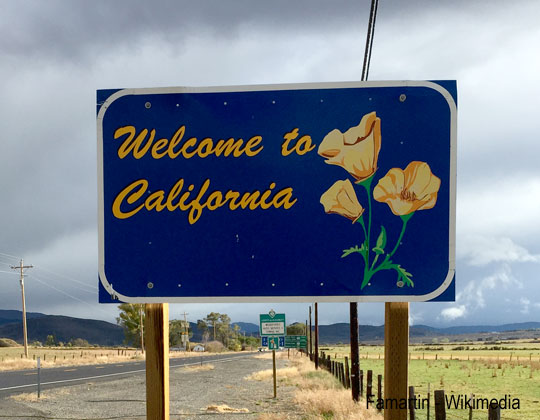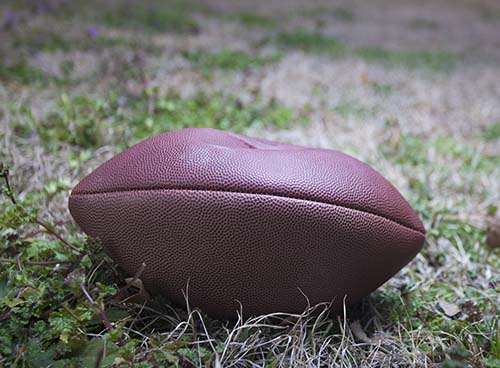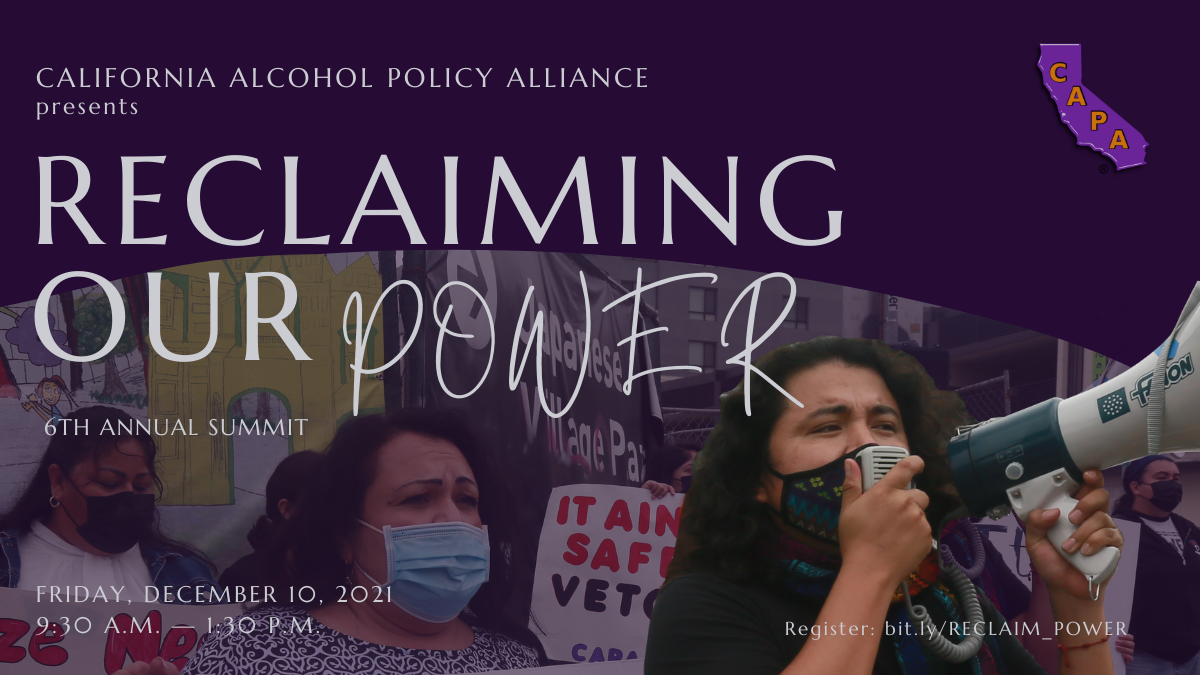Blog
Alcohol Allies Rush to Revive Rejected Bills
- Details
- Created: Friday, February 11 2022 16:16
 California’s 2022 legislative session opened with an all-fronts push of three stalled bids to deregulate alcohol. The prior year had seen an all-fronts effort to boost alcohol industry profits, giving every level of industry more service space, more delivery rights, and less oversight. Even so, as the emergency conditions that justified the original deregulatory efforts were withdrawn, some of the more reckless efforts to permanently increase alcohol sales—and therefore alcohol consumption—in the state were blocked or stalled.
California’s 2022 legislative session opened with an all-fronts push of three stalled bids to deregulate alcohol. The prior year had seen an all-fronts effort to boost alcohol industry profits, giving every level of industry more service space, more delivery rights, and less oversight. Even so, as the emergency conditions that justified the original deregulatory efforts were withdrawn, some of the more reckless efforts to permanently increase alcohol sales—and therefore alcohol consumption—in the state were blocked or stalled.
But as the second half of the 2021-2022 legislative session sees these bills back with vengeance. Here are the red-flag bills in Sacramento this year:
SB 793, aka Let’s Get Drunk With Kids!
This bill makes two substantial changes to bars’ service privileges, both of which create reckless new channels for alcohol harm. The first change encourages city to create “entertainment zones” wherein bar and restaurant patrons can carry drinks directly out of the bar, consume them on the street, and carry them into other venues. Areas with these policies already exist, including the Las Vegas Strip and Bourbon St. in New Orleans. These “entertainment zones” are frequently connected with violence, and functionally dedicate the blocks in which they are authorized to just consumption. By encouraging constant drinking, they hamper bar employees ability to engage in oversight and responsible beverage service, make it impossible to hold venues accountable for violence and overservice, and may actually diminish the economic viability of any business that doesn’t serve alcohol.
Yet it is the second change that is stranger and more reckless. SB 793 also creates a “music venue license,” which allows any bar to stop carding at the door so long as there is a band playing. It is a strange and unnecessary provision; either teenagers are essential to a music venue’s survival, in which case they don’t need a bar, or alcohol service is essential to the bottom line, in which case they do not need to permit minors. Even with perfect monitoring of drinking on the premises, this bill makes it so that no teenager can go out to a show without having to deal with drunk adults. This has the short-term effect of making teenagers vulnerable to the violence, crime, and sexual assault that is associated with overconsumption of alcohol, and the long-term effect of creating a direct and efficient way for the alcohol industry to market to minors.
There is a better political climate in which California lawmakers have the courage and imagination to incentivize venues to operate with closed bars for all-ages shows—or even to let the state underwrite the financial viability of drug-free, alcohol-free showspaces. Unfortunately, that climate remains clouded over by the prospect of making money for an alcohol industry that is financially reliant on getting kids to drink more and drink younger.
SB 620, aka Handles on Your Doorstep
Direct delivery has long been a privilege of the powerful California wine industry, and this has sparked envy among other alcohol producers. With enthusiastic backing of influential Napa state senator Bill Dodd, distillers may be poised to also enjoy that privilege. This bill opens the gates to delivery through common carriers such as FedEx and UPS to deliver hard liquor to the doorstep.
This bill has obvious problems with enforcement, making it much simpler for purchases to be made by minors and delivered with cursory ID checking by harried couriers on long routes. But it also creates the possibility for subscriptions to booze. Although no single distiller can deliver more than 36 liters per year—about 20 handles of booze, the equivalent of 2.5 drinks per day—there is obviously no cap on how much a customer can receive from multiple distillers. Moreover, this privilege does not extend only to California producers; any distiller can now ship to California doorsteps, including the biggest of Big Alcohol. This, ironically, increases the pressure on local producers and opens the likelihood of them being outcompeted by behemoths with unlimited marketing and advertising budgets, and the clout to negotiate sweetheart deals with the carriers.
This is part and parcel of circumventing the three-tier system. This system is supposed to mandate that producers, distributors, and retailers should not be the same company. Yet between sampling rooms, brewpubs, and now home delivery, the distinctions have become completely moot. The central intent of these tiers was to reduce the threat of alcohol monopoly. Now the legislature, whether through short-sightedness or duplicity, instead seeks to enshrine it in the name of consumer choice.
SB 846, aka Alcohol Uber Alles
In 2020, the public safety inspired closures of bars and restaurants led to supposedly temporary measures allowing mixed drinks to be sold to go. Last year the legislature enshrined that privilege, albeit in a limited way. Currently, California law allows restaurants to deliver mixed drinks for takeout to customers picking up food from a restaurant. However, some bars and restaurants want the option to make use of delivery services such as Uber and Lyft to expand their profits without having to be accountable for their customers.
SB 846 creates the mechanism by which this can happen. It creates a permitting system whereby bars and restaurants can deliver mixed drinks in any quantities, with no obligation to also serve food, via any permitted delivery service. Moreover, the bill explicitly absolves them of any of the normal elements of responsible beverage service—so long as the retailer “affirms” that the consumer is over 21, they have no liability for receipt by a minor, a person who is dangerously intoxicated, or a sale that creates any other dangerous situation. The liability instead falls on delivery companies, who, sitting on billion-dollar warchests and already prone to treating their drivers as disposable, can laugh away the thousand-dollar fines for violations and divert all the blame on the person making the delivery.
In short, this bill: a) encourages alcohol consumption in situations where people would not otherwise have even thought of drinking, b) perpetuates a method of sale which has been repeatedly exploited by minors seeking alcohol, c) creates a shell game of accountability for alcohol harm, and d) explodes the possibility of alcohol-related profits for delivery companies that have a consistent, decade-long pattern of contempt for transparency, public safety, and employee wellbeing.
Two of these bills—SB 793 and SB 620—have already passed through the State Senate and are in front of the Assembly. The third has been fast-tracked. It is possible that Big Alcohol’s boosters are attempting to fast-track these bills while “emergency” conditions increase public sympathy for bars and restaurants. Or it could be simpler: every day that passes is an extra buck that the industry can’t deposit. Either way, Alcohol Justice remains ready to oppose these bills every step of the way, and encourages our supporters and allies to remain vigilant and ready for the fight.
READ MORE about reckless deregulation under COVID-19 restrictions.
NFL, ABI Walk Hand In Hand Over Players and Fans
- Details
- Created: Friday, February 11 2022 16:10
 If alcohol money is the lifeblood of the NFL, it is also an open wound on the game.
If alcohol money is the lifeblood of the NFL, it is also an open wound on the game.
The Super Bowl is inextricably linked with drinking, in no smart part due to the efforts of Big Alcohol. Anheuser-Busch InBev (ABI), the brewing giant behind Budweiser, Bud Light, and scores of other brands, has poured hundreds of millions of dollars into the league to become the exclusive beer sponsor for the Super Bowl. That privilege does not just come with outsized control over advertising, it comes with the ability to reshape the narrative of the event around its sponsors.
Yet however the NFL has benefitted from beer money financially, this season was thoroughly tainted with alcohol-related harm. In November, Raiders wide receiver Henry Ruggs III, driving while intoxicated, fatally crashed into another vehicle. (Last week, a Washington player was also involved in a fatal crash, but it is not clear whether or not alcohol was involved.) Ruggs III was the latest in a line of NFL players involved in fatal DUIs; counting nonfatal events, he is the sixth player this season.
https://www.nfl.com/news/prosecutor-former-raiders-wr-henry-ruggs-iii-driving-over-150-mph-before-fatal-c https://www.nbcsports.com/bayarea/49ers/how-nfl-has-handled-players-accused-dui-resulting-death https://databases.usatoday.com/nfl-arrests/NFL teams do have a set standard for punishment of nonfelonious DUI, a three-game suspension. However, it is not clear what preventive resources are available, or mandatory. This is not just important from the perspective that prevention is always more powerful than punishment. The NFL is still contending with the fallout from decades of undiagnosed, untreated traumatic brain injury—particularly chronic traumatic encephalopathy (CTE)—among its current and former players. Although the physical damage to the brain producing CTE comes from hard contact during football games, research shows that alcohol use dramatically worsens the symptoms of CTE—even if the alcohol use was prior to the trauma event. The outcomes from CTE are frighteningly stark: executive functioning issues, depression, suicide, and dementia.
But just as the NFL had spent decades glossing over the damage caused by alcohol to its players, it remains happy to ignore the harms to fans. Super Bowl Sunday is consistently among the deadliest driving days of the year. Reports from BACTrack, makers of consumer breathalyzers, showed its users were almost as likely to report a BAC over 0.9 on Super Bowl Sunday as they were on New Year’s Eve. And this ignores the fights and crashes that have become so commonly associated with football games that they are brushed off
Nonetheless, the hype machine for this Sunday’s ad campaigns is already in full swing. Among the “highlights”:
• Fresh off a grotesquely misleading charade in which it claimed to be donating its ad time, while actually pulling only one of its many products from the lineup, ABI continues its trend of profiteering from emergency with an ad showing a signature Budweiser Clydesdale returning from a year-long injury. (The COVID-19 pandemic is far from over and alcohol use exacerbates risk and symptoms.)• The “kiddification” of products continues as Bud Light introduces a “hard soda” line, promoted through a fantasy-themed ad featuring Guy Fieri.
• The growing desperation to portray alcohol as “healthy” continues as ABI leans heavily into a “zero-carb” seltzer (alcohol itself contains calories) as well as its athletics-branded Michelob line.
• In a late contender for missing the point of… everything, Boston Beer, the brewers of Sam Adams, have a regional buy co-branded with Boston Dynamics, a literal defense contractor. The ad combines security guards drinking on the job with robots akin to the ones that have been used to harass residents of Manhattan housing projects. It is a true tour-de-force of making money while whitewashing the military industrial complex.
The result is an embarrassment of contempt for the NFL’s employees and fans. It is time to Free the Bowl. Get the toxic impact of Big Alcohol’s money out football, and maybe we can keep our football heroes out of jail.
READ MORE about our campaign to FREE OUR SPORTS®.
READ MORE about AB InBev’s sleazy COVID-19 ad “donation”.
READ MORE about the blitz of youth-oriented alcopops in NFL ads.
CAPA 2021 Summit Schedule & Speakers
- Details
- Created: Wednesday, December 08 2021 11:23

The 6th Annual CAPA Summit is coming this Friday, December 10. Our theme this year is Reclaiming Our Power: from corporate interests, from disinterested legislators, from embedded systems that have for too long prioritized profit over health, safety, and life.
Join fellow advocates, community members, researchers, and organizers in a celebration of struggles past and inspiration for those to come.
The event is free and open to the public.
You can REGISTER HERE or click "read more" to see the schedule and speakers.
More Articles ...
Subcategories
Help us hold Big Alcohol accountable for the harm its products cause.
| GET ACTION ALERTS AND eNEWS |
STAY CONNECTED    |
CONTACT US 24 Belvedere St. San Rafael, CA 94901 415-456-5692 |
SUPPORT US Terms of Service & Privacy Policy |


